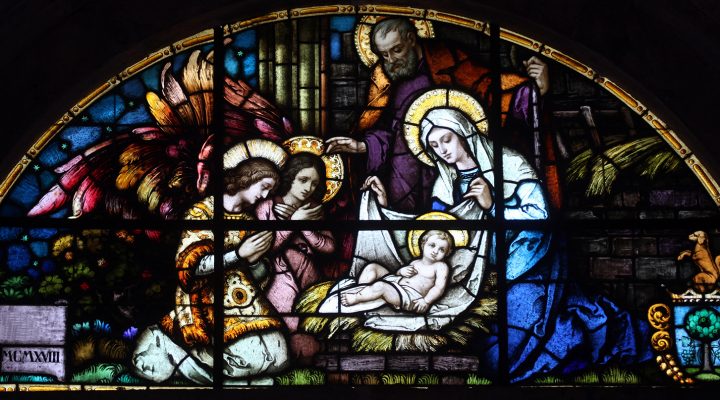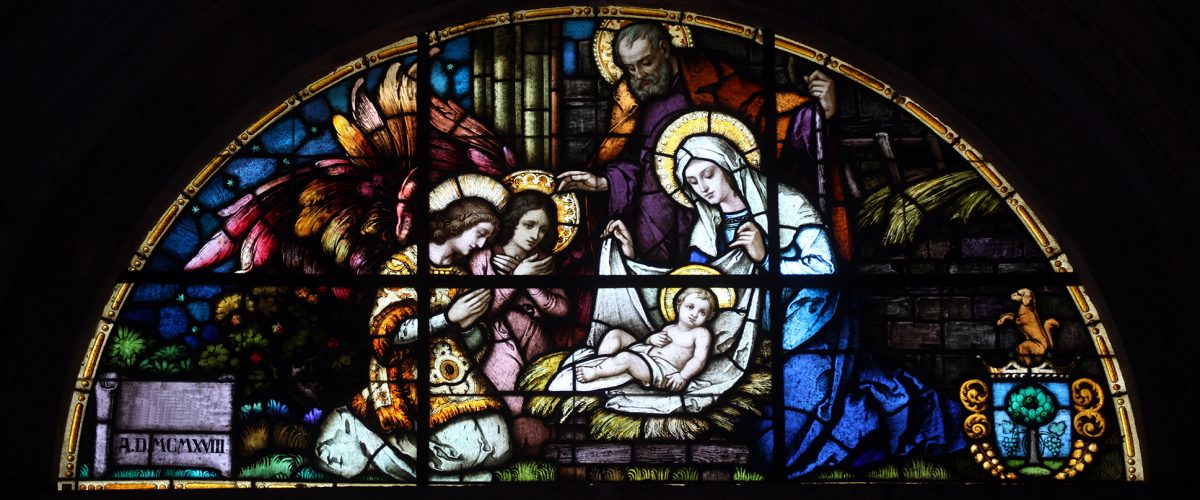AJ Sherrill hopes Christians will slow down enough this Christmas to hear the story anew.
“Familiarity of the Christmas story can breed a lot of apathy, when we think we know everything there is to know,” he said. “We stop being curious about the infinite nature of the kingdom of God, which we will forever be discovering the nature of the kingdom, which I think begins with stories like the Christmas story. It’s a story we never should tire of.”
Sherill, pastor of Saint Peters Church in Charleston, S.C., has written a book to tell the Christmas story in a fresh way, with ideas on how to observe both the liturgical seasons of Advent and Christmastide. Although an Anglican minister now, he grew up Southern Baptist at First Baptist Church of Orlando, Fla.
Rediscovering Christmas is rooted in both the story and the land where it takes place. Sherrill has made countless visits to the Holy Land, digging into the culture behind the biblical narratives.
“Walking the land for the last decade has been good for me,” he said. “Particularly for this book with the first century Jewish context in the land of Jesus you learn so much. They call the land the fifth Gospel for good reason, because when you get out of the two-dimensionality of reading and you inhabit these spaces — many of them are somewhat still preserved — going and studying for the last decade to the Holy Land help me rediscover Christmas.”
One of his goals is to help readers escape the traditions they’ve heard and recenter their ideas in the actual words of Scripture: “I had begun to dig into context in my life of really getting into the historical components of the first century and realizing some of the story we read and the stories we tell around Christmas might need some revision to be a little closer to the historical context of what the nativity is all about.”
To that end, he unearthed 13 characters that surround the nativity story and wrote to “dig deeper in the context that was entirely relevant to our lives today.”
He also intentionally divided the book into two parts that correspond with the liturgical seasons of Advent and Christmastide. He calls these the waiting period and the gift-receiving period.
“You have the four weeks leading up to Christmas morning, and that’s called Advent. And that’s a season of waiting, it’s a season of allowing ourselves to cultivate expectation and to not satisfy those expectation through lesser loves,” he said. “The other part is what happens past Christmas.”
Americans “start the celebration so early, like right after Thanksgiving, we are like, the tree is up, the Christmas music is going, 24-hour radio is constantly pumping [out] joy to the world. But really, we’re called to wait in the dark until the light comes on Christmas morning. And then Christmas begins.”
 That season of Christmas historically is 12 days — “you know, the 12 days of Christmas, that song you gave gifts on every day” — and Christians lingered in that season rather than putting all the decorations away and getting ready for football.
That season of Christmas historically is 12 days — “you know, the 12 days of Christmas, that song you gave gifts on every day” — and Christians lingered in that season rather than putting all the decorations away and getting ready for football.
On Christmas Day, “the real action of the game is that Emmanuel has just now started,” he said. “And so, we’re called to party into the weeks to come.”
To that end, his book is divided into pre-birth narratives and post-birth narratives. The story of Zechariah is an example of a pre-birth narrative of Jesus. And the story of the magi is a post-birth narrative of Jesus.
Zechariah is an example of a character too often overlooked in the biblical stories of Christ’s birth, Sherrill said. “We quickly get to John the Baptist and skip over his story, but here’s a guy who was in his old age, barren, which is socially shaming because the primary blessing of the first century was childbearing. And here they are, this old religious couple who had been faithful to Torah, to the way of the old covenant, and he’s one of the hierarchies, like at the top of the food chain, and here he is barren.
“You have to wonder what that was like. So when he goes into the temple, he draws the straw to go into the room that’s literally next to the Holy of Holies. Talk about a bucket list moment for him. Here he is, old age without a child, probably feeling a sense of underwhelm and disappointment, maybe even a sense of anger at God. That moment when he is visited by the angels, it’s no wonder that he was startled because he probably had stopped expecting God’s presence in his life. He had waited all these years to see God come through and God does.”



